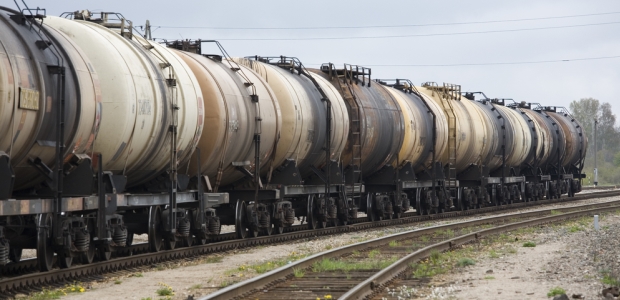
North Dakota Sets Rules for Making Oil Safer to Transport
The North Dakota Industrial Commission on Dec. 9 issued an order spelling out conditioning standards that all wells must use, effective April 1, 2015, "to improve the marketability and safe transportation" of Bakken crude oil.
The North Dakota Industrial Commission on Dec. 9 concluded a hearing that began in September 2014 by issuing an order that lists conditioning standards that all wells must use, effective April 1, 2015, "to improve the marketability and safe transportation" of Bakken crude oil. Bakken crude was the cargo of the train that derailed, exploded, and burned in Lac-Megantic, Quebec, prompting action by Canadian and U.S. transportation authorities.
The order lists more than 30 representatives of energy companies and trade associations who submitted oral or written comments for the record; the commission had sought testimony about issues that included typical operating temperature, pressure, and retention time of gas/liquid separators and treaters; capital costs of typical gas/liquid separator and treating equipment; and field operation methods to effectively reduce the light hydrocarbons in crude oil.
The order says all wells completed in the Bakken Petroleum System must be produced using a "gas-liquid separator and/or emulsion heater-treater of ample capacity and in good working order that effectively separates the production into gaseous and liquid hydrocarbons," and that it must be operated with the manufacturer's recommended operating limits. Production facilities using this equipment at a pressure of no more than 50 psi on the final stage of separation prior to the crude oil storage tanks must heat the produced fluids to a temperature of no less than 110 degrees Fahrenheit, it states.
The order also lists practices that now will be prohibited, including blending crude oil from the Bakken Petroleum System with liquids recovered from gas pipelines prior to custody transfer and also blending crude oil from the Bakken Petroleum System with natural gas liquids prior to custody transfer.
It says the operator of any transload rail facility must notify the state if it discovers any crude oil received from the Bakken Petroleum System that violates federal crude oil safety standards.